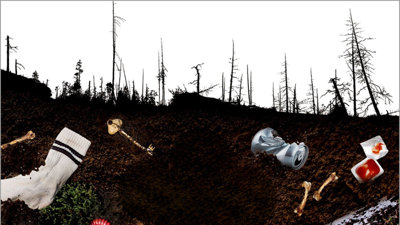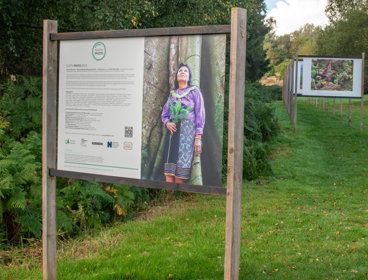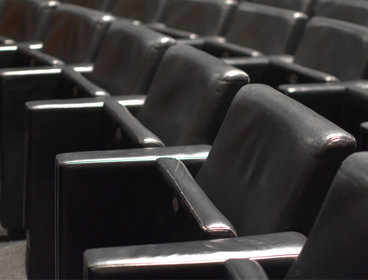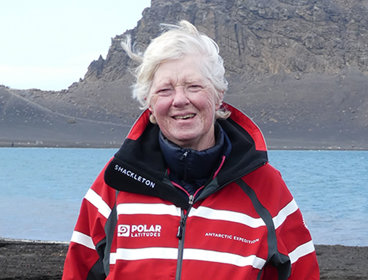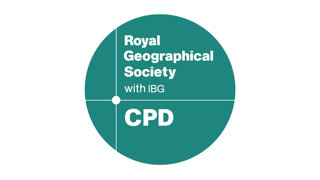We are now undergoing the latest major revolution in our planet’s history: that of transformation through human impact, for which the name Anthropocene is proposed. Growing technology is now maintaining a global population of over 8 billion. Among the consequences are a rapidly warming climate, a degrading biosphere and a pervasively polluted Earth.
Among the many transformations of this new epoch has been the creation of new kinds of objects and structures: plastic bottles, credit cards, cans, teabags, motorways, houses, T-shirts, computers and countless other items produced for our comfort and pleasure, and then sooner or later, discarded.
This newly created plethora of 'stuff' is now the basis of our lives. They can be called future 'technofossils' – fossilisable constructs arising from our modern technology. Sarah and Jan will explore how these discards may lie buried over decades – attacked by bacteria, bathed in water or left to mummify – baked by the sun and eventually the Earth’s core heat.
Will we live in a world buried under our growing waste piles? And, over the centuries, will our artefacts make the slow and complex transition to strata bound fossils?
About the speakers
Sarah Gabbott, Professor of Palaeobiology, University of Leicester, researches the fossil record of ancient life, particularly how fossils form, and what they reveal about evolution and ecology. Recently she has turned her attention to the potential fossil record created by human activity.
Jan Zalasiewicz, Emeritus Professor of Palaeobiology, University of Leicester, was formerly a field geologist with the British Geological Survey. His interests include Early Palaeozoic fossils, Quaternary ice ages and the geology made by humans. In recent years he has helped develop and popularise the concept of the Anthropocene epoch.
Booking information
- Advance booking for this event is required. In order to book you will need an account on our website. If you already have an account you will be prompted to log in when you click 'book now'. Please create an account if you do not have one yet (you do not need to be a member of the Society to create an account).
- Tickets are £5, and free for Society members. Students can book free tickets by entering the code OX2025 at checkout. Please book by midday on 25 November.
- We do not issue tickets (electronic or physical) for this event. Instead your name will be on a list at the door.
If you have any questions or require assistance with your booking, please email events@rgs.org
This event has been organised by the South East regional committee.
Venue information
This event will be held in the Earth Sciences Seminar Rooms at University of Oxford Department of Earth Sciences, South Parks Road, Oxford, OX1 3AN. What3words: dads.magic.lions.
There is no parking at the venue. Street parking in the South Parks area is available but limited.
Accessibility at our events
We want everyone to feel welcome at our events. For full details, please visit University of Oxford's accessibility page. If you have any questions or specific access requirements, feel free to get in touch with us on access@rgs.org
